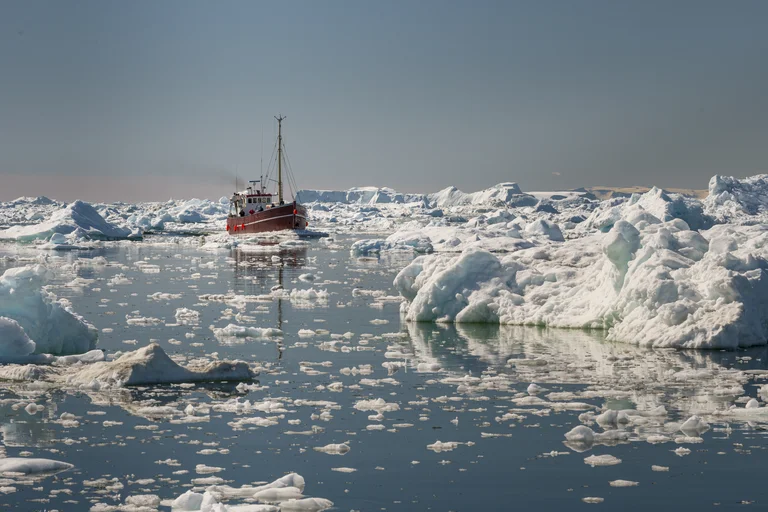
Slowdown In Arctic Ice Melt What Scientists Are Saying
Scientists report a dramatic slowdown in Arctic ice melt over the past two decades. Discover what’s behind this pause, the latest stats, and why experts warn it won’t last.
Comparing today with the 1980s & 1990s:
For many years, the Arctic has been a clear sign of how fast the planet is warming. Every summer season the ice covering the Arctic Ocean melts, & scientists have observed it shrinking at alarming speeds. But recently, scientists noticed something unexpected: the rate of melting has slowed down compared to the rapid losses seen in the 1980s & 1990s.
Is the Arctic improving as a result of this? Unfortunately, no. According to scientists, this slowdown is simply temporary and may not last for very long. Let’s talk about what’s going on.
What the Data Shows:
- The Arctic had around 7.66 million km² of ice in July 2025. However, since satellites began monitoring in 1979, this July has been the fourth driest on record.
- September always has the least amount of ice, but this season it is a minimum of 50% less than it was in 1979.
- The amount of ice in late July was comparable to that of the record-low year of 2012. In summary, although at a little slower rate than previously, the Arctic is still losing ice.
Why Is the Melting of Ice Slower?
Scientists say that this slowdown in Arctic ice melt is mostly because of normal weather changes in the oceans and atmosphere.
One study estimates that Natural ocean cycles (Atlantic & Pacific) are temporarily pushing less heat into the Arctic, which helps the melting go more slowly. A change in the Atlantic Ocean’s circulation system, also referred to as the AMOC, has also contributed. According to scientists, this has slowed the loss of ice by reducing it by one-third since 2000.
The Arctic hasn’t healed yet; it’s just taking a short break because of the way nature works.
Why Experts Say It Won’t Last:
The problem is still there, even though things are slower. Scientists warn that:
According to Scientists, this slowdown in Arctic ice melt might not last long. It could just be a short break and may end in the next 5-10 years. The ice might start melting even faster possibly losing over 500,000 km² each decade in September alone. At the same time, the ice is getting thinner, which makes it weaker and more likely to melt quickly during warm summers.
The Importance of Arctic Ice:
Like a mirror, the Arctic ice helps keep the globe cold by reflecting sunlight back into space. The globe warms considerably more quickly when the ice melts because the dark water absorbs more heat. This can:
- An increase in extreme weather conditions, like floods and heat waves.
- Raise sea levels.
- Change global weather patterns.
The Arctic ice is still melting, but the process has slowed down a little. It’s a small piece of hopeful news, but we still have a long way to go. Scientists are watching closely.
Read more related articles > https://www.climatechallange.com/frozen-forest-reveals-climate-impacts-on-alpine-ecosystems/